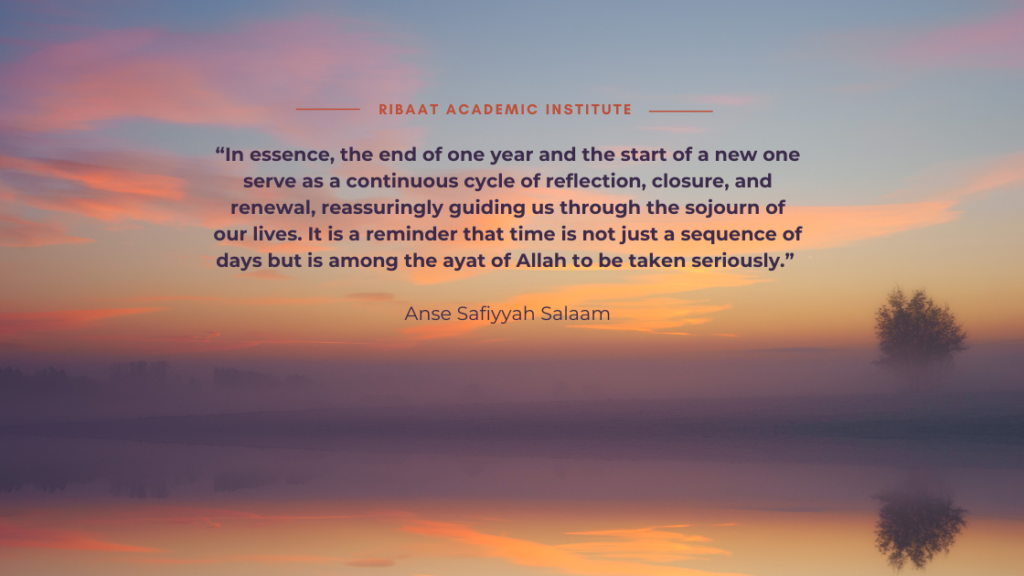As an educator, this time of the year is always bittersweet for me. While the semester draws to a close with exams, class parties, and grades, I also feel a sense of sadness for the ending of another calendar year. This season always marks for me the end of one part of my journey in this life, and the inception of the next. For me, it invites reflection, closure, and anticipation. As the calendar draws to a close, it prompts me to look back upon the experiences, challenges, and growth that have shaped me over the preceding months. It also inspires me to cast my gaze forward, brimming with aspirations, resolutions, and the promise of fresh beginnings.
As believers, the conclusion of a year often serves as a natural pause, a moment to contemplate the journey traveled. In December, we often reflect on the challenges and triumphs, the losses and gains, the wins and losses. Each experience contributes to our personal narrative, enriching our understanding of the nature of this world or dunya. In addition, it is an opportunity for us to take ourselves to account for the deeds we have amassed this year and have an authentic conversation with ourselves regarding our growth along this path. ‘Umar ibn Al-Khattaab, said, “Call yourselves to account before you are called to account, and weigh yourselves before you are weighed, as calling yourselves to account today will make it easier for you when you are called to account tomorrow, and be adorned for the great appearance: that Day shall you be brought to Judgment, and not a secret of you will be hidden.” Therefore, now is the time to ask ourselves: Where do we stand in our relationship with Allah? How is our ibaadah? Are we still committed to our pursuit of sacred knowledge? Have we poured ourselves into serving others, including our family, community, and companions along the path? As we navigate these questions and honestly scrutinize our own hearts and actions, we prepare ourselves for a fresh start as the soil is tilled in anticipation for the seeds of a new garden.
As Anse Tamara often advises, I seek out opportunities to have a beautiful ending (husnul khitam) to the year by establishing and maintaining yearly traditions. Having worked in the education world for several years while being clearly a Muslim, I still try to demonstrate my love for my coworkers by giving them gifts this time of year. While reviewing my debts and paying off as many of them as feasible, I simultaneously budget funds towards charitable giving so that organizations like Rabata can continue their missions in the Muslim community and beyond. I finish my to-do lists, scrub clean my office and my home, and parse through and organize my planners and journals.
At the same time, the promise of a new year brings with it a sense of renewal. It invites us to set intentions, to envision the person we aspire to become, and to chart the course of our growth. It is the time to set personal goals for ourselves that include our worship, learning, and relationships with others. Moreover, it offers us the chance to self-correct and make meaningful changes in our lives. We should neither set unrealistic expectations for ourselves nor throw in the towel and accept our deficiencies as just a part of who we are. Rather, as Allah says, we should, “strive for Allāh with the striving due to Him. He has chosen you and has not placed upon you in the religion any difficulty” (22:78).
In essence, the end of one year and the start of a new one serve as a continuous cycle of reflection, closure, and renewal, reassuringly guiding us through the sojourn of our lives. It is a reminder that time is not just a sequence of days but is among the ayat of Allah to be taken seriously. So, as one year draws to a close and another beckons, let us embrace this transition with contemplative and open hearts, ready to embrace the possibilities and opportunities that lie ahead.
Course: Teaching Skills and Methodology

